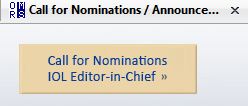 We had a record (21 inch) snowfall on Friday night, if you consider the 4th biggest snowfall of all time (since the 1860s) a record. Since then, our city seems to be trying to turn this into our own little Katrina, showing very little planning or execution in getting the city back in working order. City schools are closed and our street has yet to see a plow. Once a car is painfully extracted from its snow cocoon, a curious Pittsburgh rite begins: the placement of the kitchen chair. Since the city is unable to actually remove any snow (it only pushes it around a bit), no on-street parking spaces are cleared except laboriously by hand. Since it would be manifestly unfair for someone else to use the vacated spot, a kitchen chair is the accepted marker for “If you take this spot, I will curse you and your children and let the air out of your tires”. Coincidentally, I have my property tax check waiting to go in the mail. What exactly am I getting for this high charge?
We had a record (21 inch) snowfall on Friday night, if you consider the 4th biggest snowfall of all time (since the 1860s) a record. Since then, our city seems to be trying to turn this into our own little Katrina, showing very little planning or execution in getting the city back in working order. City schools are closed and our street has yet to see a plow. Once a car is painfully extracted from its snow cocoon, a curious Pittsburgh rite begins: the placement of the kitchen chair. Since the city is unable to actually remove any snow (it only pushes it around a bit), no on-street parking spaces are cleared except laboriously by hand. Since it would be manifestly unfair for someone else to use the vacated spot, a kitchen chair is the accepted marker for “If you take this spot, I will curse you and your children and let the air out of your tires”. Coincidentally, I have my property tax check waiting to go in the mail. What exactly am I getting for this high charge?
Anyhow, enough of the rant. Being snowed in (for three days and counting, and furthermore…. OK, …calm) allows me to read my favorite issue of my favorite journal. The January-February 2010 Interfaces is now available, and we all know what that means: the Edelman Papers! The Edelman, of course, is INFORMS big prize for the practice of operations research. Every year, a few dozen nominees get whittled down to a half dozen finalists. These finalists then prepare a fancy presentation, ideally involving a Cxx for suitably impressive xx. They also put together a paper describing their work. This is then published in the January-February of Interfaces.
I was a judge in the last competition, so I know the work of the finalists very well. But it is inspiring to read the final versions of their papers. I have a course on the applications of operations research that I teach to our MBAs and Edelman papers are generally a highlight of their readings.
In the 2009 competition, the finalists were:
CSX Railway Uses OR to Cash In on Optimized Equipment Distribution
Michael F. Gorman, Dharma Acharya, David Sellers
HP Transforms Product Portfolio Management with Operations Research
Dirk Beyer, Ann Brecht, Brian Cargille, Russ Chadinha, Kathy Chou, Gavin DeNyse, Qi Feng, Cookie Pad, Julie Ward, Bin Zhang, Shailendra Jain, Chris Fry, Thomas Olavson, Holger Mishal, Jason Amaral, Sesh Raj, Kurt Sunderbruch, Robert Tarjan, Krishna Venkatraman, Joseph Woods, Jing Zhou
Operations Research Improves Sales Force Productivity at IBM
Rick Lawrence, Claudia Perlich, Saharon Rosset, Ildar Khabibrakhmanov, Shilpa Mahatma, Sholom Weiss, Matt Callahan, Matt Collins, Alexey Ershov, Shiva Kumar
Marriott International Increases Revenue by Implementing a Group Pricing Optimizer
Sharon Hormby, Julia Morrison, Prashant Dave, Michele Meyers, Tim Tenca
Norske Skog Improves Global Profitability Using Operations Research
Graeme Everett, Andy Philpott, Kjetil Vatn, Rune Gjessing
Zara Uses Operations Research to Reengineer Its Global Distribution Process
Felipe Caro, Jérémie Gallien, Miguel Díaz, Javier García, José Manuel Corredoira, Marcos Montes, José Antonio Ramos, Juan Correa
Any one of them could have been the winner: I really liked all of the work. HP ended up winning(now that I see the author’s list, they certainly had the numbers on their side!). I get to judge again this year, and am once again looking forward to doing that.
So, back to the hot chocolate and the fuming about municipal services… hmmmm… I wonder if I can convince our mayor to use a bit more operations research?


